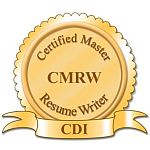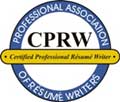Back in the late 70s, early 80s I attended a Careertrack seminar. I don’t remember the name of the seminar. I don’t really remember the exact topic, but one story the presenter shared stuck with me all these years.
The presenter, (we’ll call her Sue) traveled across the US doing seminars. Because of a hectic travel schedule, Sue spent a lot of time in airports peopl e watching. One day, she noticed a woman in an absolutely beautiful white suit. It fit her to perfection and had delicate, intricate embroidery adorning the jacket. The woman was breathtaking and caught quite a few eyes as she navigated the airport terminal. Sue approached her and complimented her exquisite raiment. She went on and on about the fit and the gorgeous detailing. The woman thanked her and shared she had made the suit herself AND done all the embroidery work. This blew Sue away. Not only was the suit (and the woman) stunning; the woman created it. Then, the woman did something equally stunning to Sue. She started pointing out the flaws in her own work. “I appreciate the compliment, but I never took time to line it properly. <opening her jacket to demonstrate> Look at how ragged the seams are. I should have finished them better. And really, if you look, I probably should have trimmed up the ends of the embroidery threads a little closer. It shouldn’t look this rough on the inside. I should have lined it.” WHAT???? In about two seconds, this impeccably-dressed woman took a well-intended, sincere compliment and used it as an opportunity to point out the “flaws”, degrading herself and her talent in the process.
e watching. One day, she noticed a woman in an absolutely beautiful white suit. It fit her to perfection and had delicate, intricate embroidery adorning the jacket. The woman was breathtaking and caught quite a few eyes as she navigated the airport terminal. Sue approached her and complimented her exquisite raiment. She went on and on about the fit and the gorgeous detailing. The woman thanked her and shared she had made the suit herself AND done all the embroidery work. This blew Sue away. Not only was the suit (and the woman) stunning; the woman created it. Then, the woman did something equally stunning to Sue. She started pointing out the flaws in her own work. “I appreciate the compliment, but I never took time to line it properly. <opening her jacket to demonstrate> Look at how ragged the seams are. I should have finished them better. And really, if you look, I probably should have trimmed up the ends of the embroidery threads a little closer. It shouldn’t look this rough on the inside. I should have lined it.” WHAT???? In about two seconds, this impeccably-dressed woman took a well-intended, sincere compliment and used it as an opportunity to point out the “flaws”, degrading herself and her talent in the process.
Sue used this example to show how we (especially woman) find it difficult to accept a compliment. Rather than say “Thank you.” or “Thank you. I always feel good when I wear this suit.” we find a way to negate our own wonderfulness. Sue challenged us that day to start graciously accepting and enhancing compliments. At the very least she wanted us to learn how to say “thank you” … and then shut up. She wanted us to stop diminishing ourselves with reasons why a compliment couldn’t possibly be valid. It’s not only insulting to the giver. It’s insulting to you too.
I use this same idea to help clients understand it’s OK to answer interview questions without offering every shred of detail about a circumstance. For example, I worked with a talented and skilled nurse a while back. During the information gathering part of the resume process, she told me about a previous job she’d lost because of family crisis. Without prompting, she told me her son’s former girlfriend (and guardian to their two children) had been arrested. Her son was out of town and everyone was unsure of the arrangements made for the children. She had no choice but to miss work, locate the children and ensure their safety. She lost her job because of it.
I was taken aback. I’d not asked for an explanation and didn’t need to know that level of detail. “Past family crisis” and “it’s now under completely under control” was all I or anyone else needed to know. Recognizing how freely she shared this information with me, I had to ask if she ever shared this story during interviews. You guessed it. Her response was “Of course. It’s the truth. My past employer was wrong and I want a potential employer to know it wasn’t my fault.” (From a hiring standpoint, do you see a few red flags here?)
Sadly, even with impressive credentials, leadership capabilities and vast medical knowledge, potential employers had little interest in her after an initial interview. When I asked if she saw a possible connection between that story and no job offer, she didn’t see it. In her mind, she was being honest. She didn’t see how an employer may see her unnecessarily-shared past baggage as overriding her expertise. In essence, she took a “beautifully-embroidered, perfectly-fitted white suit” and showed the “lack of lining and embroidery knots” with the details behind the termination. She diminished her expertise and, I’m sure, talked herself out of countless positions. (We worked out a less telling way to share that piece of her employment history.)
I’m not proposing making up things or lying during interviews, but an interview isn’t the time to show your lack of lining. You don’t have to bare your soul and share your most intimate secrets and questionable personal information. Take time to prepare and rehearse a positive response to “sketchy” portions of your work history. (And if you’ve worked long enough, you’re sure to have had a bump in the road somewhere along the line.) An interview is the time to put your best foot forward and dazzle a hiring authority with your expertise. Find a way to answer questions while painting yourself in the best possible light. Show off your perfect fit and exquisite detail … and then shut up.
PS – See the power and impact of a good story when used to demonstrate a point (or a skill). This one stuck with me for almost 30 years. Stories sell. Stories are memorable. Perfect yours.

 Link to this page
Link to this page













[…] Dawn Bugni shares more on this topic here. […]
This is a terrific article Dawn, and of course, you won’t be the least surprised to know that you and I have similar views on this subject! I’ve had clients tell me to include maternity leave, sexual harassment cases, and the biggest one of the lot, including a woman’s time as being the victim of an abusive spouse! I wrote about it here: http://www.theexecutivebrand.com/2010/04/29/resume_and_life_experiences/
This is so true. Of course there is no need to lie, but not everything is relevant to the job either! Pointing out potential flaws to your candidacy (particularly when it is not related remotely to the job) is not noble or transparent. It’s just self-sabotage!
Another great article!
Gayle –
You’re right. It doesn’t surprise me that you and I share similar views on this. I am astounded by what people will share, unprompted and unnecessarily, in myriad circumstances — not just job search. You are SO right: “Let it all hang out? Forget it!”
Thanks for adding to the conversation.
Love it, Dawn. So true. “TMI” strikes far too often, and as your example points out, jobseekers are often clueless. Yes, practice and rehearse, and get feedback from an experienced career coach!
Susan –
Great add: “Get feedback from an experienced career coach.” People are trained to do their jobs; not conduct a job search and interview. Then when it’s time to make a change, they wing it and wonder why it doesn’t work. Research, rehearsal and planning are integral to job search success. And a coach can help make those daunting tasks seem much more manageable.
So happy you stopped by. Thank you!!
[…] This post was mentioned on Twitter by Dawn Bugni, Gayle Howard. Gayle Howard said: .RT @DawnBugni: Blogging: My latest "…and then shut up" http://is.gd/doqNe >>>Always terrific work Dawn! […]
Hi Dawn, I always check if people tell me a past story how they plan to discuss the subject in an interview but because of the way I write resumes and help them target their searches, I never discourage anyone from telling me anything. If they feel safe enough to tell me how they are hurting, then we can work through what to say in an interview. I would like it less if they didn’t share something with me and then blurted it out in an interview.
For years, I have had clients tell me that they finally feel confident to move forward after meeting with me and discussing their issues. If I feel they need further help, I recommend trained counselors but I think sometimes job seekers just have to get things out of their systems to move on.
Julie –
You’re right, I don’t discourage sharing during a consultation either. People do sometimes “just need to get it out of their system” so they can move forward. And I’m happy to be that outlet for them. I too check to see how they’re going to handle things during an interview and will help develop a positive approach to difficult topics.
However when sharing becomes a roadblock to employment, then it’s too much. An interview isn’t “True Confessions” time. It’s a time to shine. If a client can shine by purging with me, then I’m all for it. If they need more assistance than I can provide, I, like you, will help them find a coach or other resource to handle whatever it is they’re battling.
Bottom line, confidence and a positive presentation is paramount during a search. It’s not time to air dirty laundry with a potential employer. Too often, people spill their guts because they’ve not taken the time to properly prepare and that can be a major obstacle to employment. As you and Susan indicated, working with a career professional is a great way to avoid “foot in mouth” syndrome.
Good insights and clarifications Julie! Thanks!!
Great article! For many people it is easy to give in to self doubt and criticism (and overshare). Creating positive self conversations is the first step to a better self image and self-esteem.
Developing a positive self conversation is not only good advice for job searching, it is also good advice for life.
Absolutely Gayle!! (AKA, Coach T). Positive internal sentences, knowing what you’re going to say in touchy situations, understanding the needs of audience all create a positive interview experience as well as positive life adventures.
Thanks for commenting!
(BTW — for those of you needing a little help with accountability and reaching goals, Coach T offers a GREAT service. Check out her site by clicking on her name.)
[…] What kind of tapes play in your head all day long? I’m not talking about your iPod play list. Are you saying positive things to you about you or is your dialogue peppered with, “You idiot. I can’t believe you were so stupid. I’ll never find a job. It’s not my fault, the world is against me. I never do anything right. I’m always late.” – enough! You get the idea. You spend more time with yourself than you do with anyone else on the planet. Be encouraging in what you say to yourself. (For more on this topic: “What are YOU saying about you?“and “…And then shut up“) […]
Dawn, thanks for this insightful ‘tasteful’ manner in which you have gently probed this client to rethink her response. You have helped me to offer an alternative view to my clients who feel the need to tell me more than I ask. I am certainly a talker, and I use my outgoing personality to help clients understand that they must keep in mind the ‘question behind the question’ before responding to interviewers. Many times, they will say, “Well, you and I are just talking.” Then I try to explain that networking happens in very casual conversations and this is perhaps the time to keep in mind why you are responding to concerns and questions of a personal nature even in business networking events. Gr8 !! Thanks a bunch for the article.